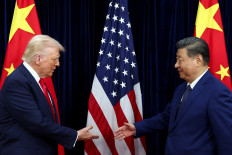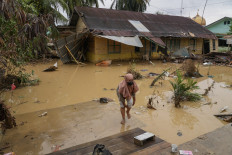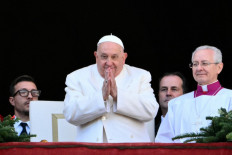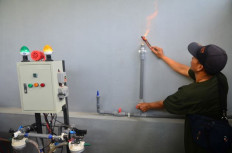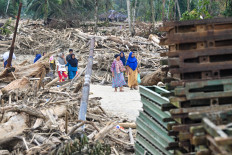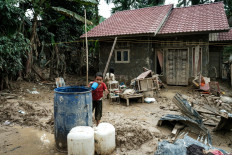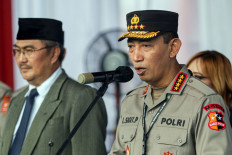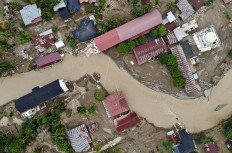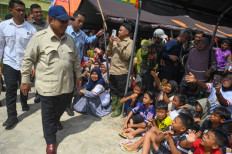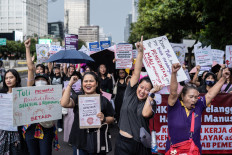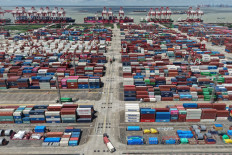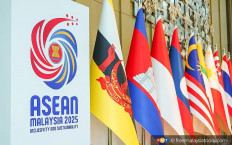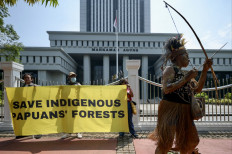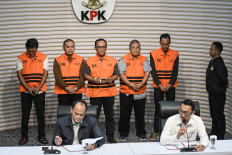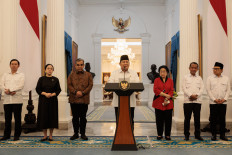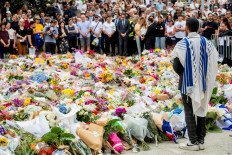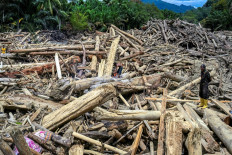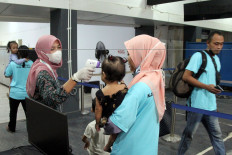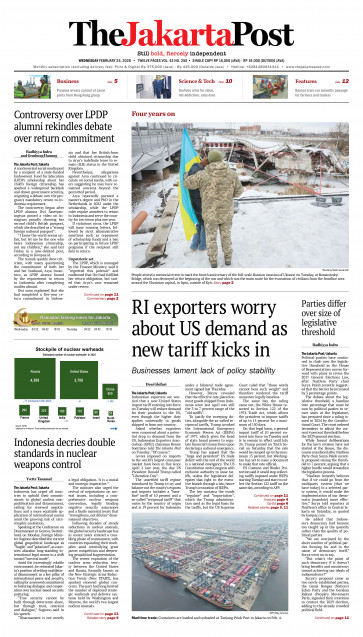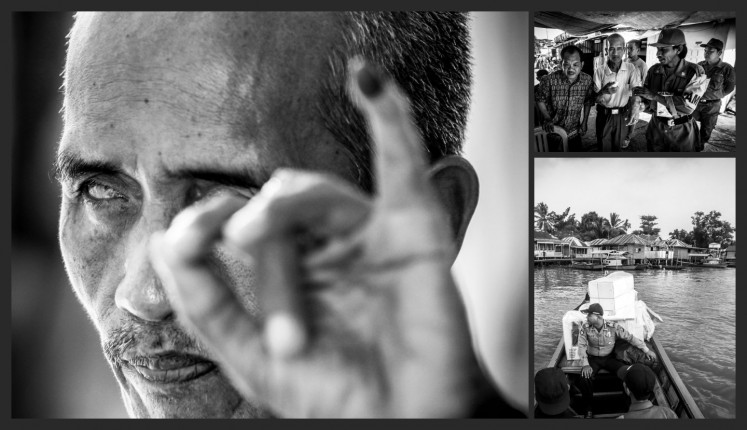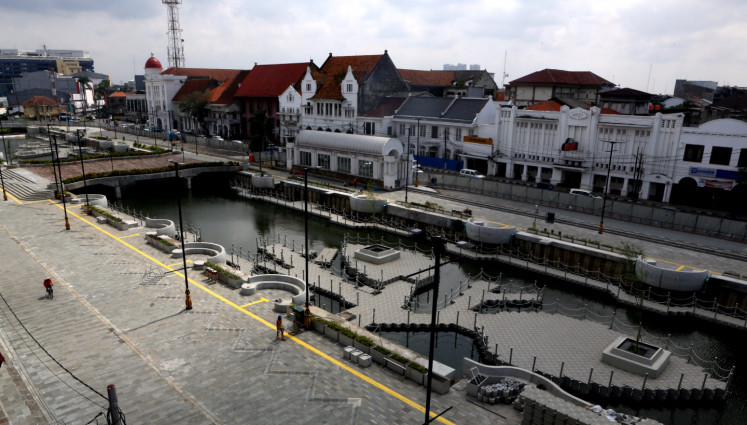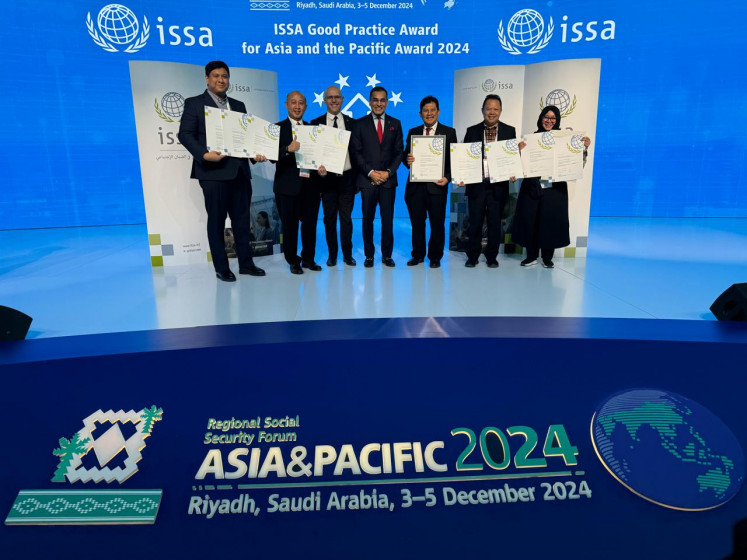Popular Reads
Top Results
Can't find what you're looking for?
View all search resultsPopular Reads
Top Results
Can't find what you're looking for?
View all search results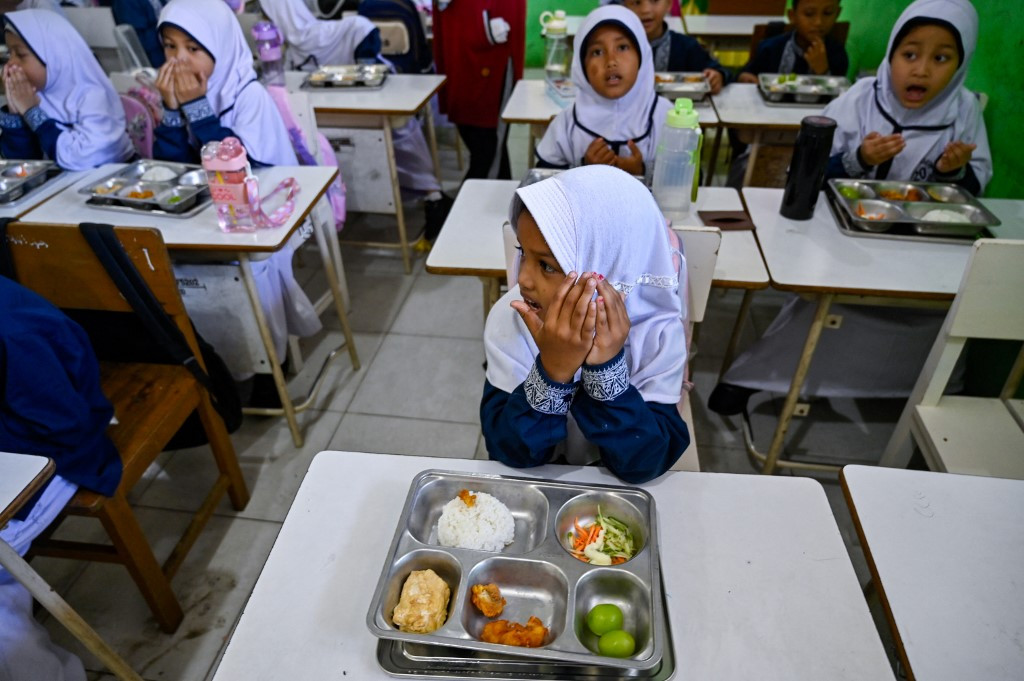
Strengthening the free meals program through women and communities
Nearly a year on since the launch of the free meals program, several studies point to an opportunity for policy learning: scaling the program toward its envisioned targets by placing women at its heart.
1 month agoIndonesian history: A foundation of national identity
To coincide with National History Day on Dec. 14, the Culture Ministry held the soft launch of Sejarah Indonesia: Dinamika Kebangsaan dalam Arus Global (Indonesian history: National dynamics in global currents). ...
1 month agoWhy perspective matters in humanitarian crises
The way we understand humanitarian crises determines whether we truly attempt to resolve them, or merely manage them so they remain tolerable. ...
1 month agoThe Latest
Rogue hegemons are sabotaging the global economy
The US under the Trump administration has emerged as a global hegemon alongside China, albeit with different drivers, afflicting the rest of the world with limited opportunities, especially developing countries.
1 month agoSoft power, hard rind: China and durian
China’s growing appetite for durian is giving this famously divisive fruit political power.
1 month agoA look at Asia’s 2025 winners and losers
From cybercrime and disasters to an elfin plush toy trend, here are some of the worst and best to happen in the Indo-Pacific throughout the year.
1 month agoChristmas 2025 message: Saving the nation, starting from the dinner table
The Christmas 2025 theme as declared by the PGI and the KWI urges reflection on the state of Indonesian families and how "saving" them is inherently linked to the republic's future.
2 months agoCelebrating Christmas amid ecological disaster
In celebrating Christmas, Christians are invited to demonstrate concern for the Earth rather than adding to its burdens through environmentally unfriendly celebrations.
2 months agoTurning Indonesia’s mounting waste into watts
Through the waste to energy initiative, Danantara will provide the investment, while the state utility company, PLN, will handle the electricity generated.
2 months agoAre our labs equipped to achieve cervical cancer screening targets?
Out of the 386 regencies and mayoralties targeted by the Health Ministry, fewer than half are estimated to have public health laboratories currently capable of processing PCR-based HPV DNA tests to detect cervical cancer.
2 months agoThe strategic necessity of ‘mandiri’ in the extreme climate age
The Indonesian term "mandiri" embodies the type of strategic governance necessary to unify a state's resources under a single command during a natural catastrophe.
2 months agoWe don’t have to choose between sovereignty and humanity
The debate about foreign assistance is a proxy for a deeper question of whether the state can make fast, clear, citizen-first decisions under pressure.
2 months agoThe Constitutional Court ruling that is (not) final and binding
The current polemic between the Constitutional Court and the National Police is a test of the state vis-à-vis the ethics of power.
2 months agoFragmented governance the hallmark of Prabowo’s presidency
As long as Jokowi loyalists remain within Prabowo’s government—not merely to sustain influence but to survive politically ahead of 2029—fragmented governance is likely to persist.
2 months agoIndonesia's modernized penal code ratification represents positive transformation
Indonesia is set to implement the New Indonesian Penal Code (Kitab Undang-Undang Hukum Pidana Baru or KUHP Baru), scheduled to come into effect on Jan. 2, 2026, enacted through Law No. 1 of 2023. The change demonstrates the country’s move away from a colonial-era criminal justice framework and reflects a modernized legal system rooted in national values and aligned with contemporary international norms.
2 months agoIndonesia’s EV market races ahead with 49% growth despite auto slowdown
Electric vehicles are rapidly changing Indonesia’s automotive landscape, gaining remarkable traction and offering hope for a cleaner and more innovative future despite declining traditional car sales.
2 months agoInternational aid and the state: Nargis Myanmar vs Senyar Aceh
In the aftermath of the disaster devastating parts of Sumatra, the lesson of Nargis is relevant not because Indonesia is on the brink of total failure, but because the moral test is identical.
2 months agoExpendable lives, lack of leadership in the Sumatra disaster
Prabowo seems to live inside a political bubble, dependent on information filtered by ministers and advisers whose main job is protecting his pride rather than telling him the truth.
2 months agoWomen are leaving what no longer serves them
Patriarchy damages a potentially powerful force of mature masculinity, one that could have been emotionally grounded, ethically strong and socially accountable
2 months agoHow to deal with involution in China
Multiple factors have contributed to overcapacity in China due to intense domestic competition, and though the government has several anti-involution measures in place, it will take time before they begin effecting any change.
2 months agoWhat the Philippines chairmanship means for ASEAN
ASEAN as a liberal institutionalist entity continues to suffer from political realist power plays which strain ASEAN unity.
2 months agoForests, fuel and food: Is expanding oil palm to Papua worth the cost?
Forest loss to palm oil plantations directly weakens these dimensions by increasing disaster risk and exposing communities to instability.
2 months agoThe limits of responsible business labels in nickel industry
Nickel smelter companies have increasingly worked with major national outlets such as Kompas, CNN Indonesia, and Tempo to run advertorials and sponsored content.
2 months agoWhy the usual approach to corruption keeps failing
The real task of eradicating corruption is narrowing the space where wrongdoing still feels normal, necessary or excusable.
2 months agoWomen’s leadership and the long road to Golden Indonesia 2045
The theme selected by the women’s ministry for Hari Ibu 2025 proposes a shift to a pragmatic, inclusive strategy that embraces women leaders' creativity and resilience toward achieving the country's centennial vision.
2 months agoCan artificial intelligence end the political blame game?
Under President Soeharto's administration, the blame game seemed to evolve into a tool for active control.
2 months agoThe Bondi tragedy: The rising specter of inspirational terrorism
In today's interconnected, borderless digital world, counterterrorism strategies must evolve to one of preparedness that emphasizes the early detection of online narratives that glorify violence, so as to nip inspirational terrorism in the bud.
2 months agoAs ecological disasters intensify, judiciary can lead the way
The judiciary is our last line of defense in driving an urgent rethink of Indonesia's growth-centric policies, which are inherently unconstitutional, toward a mindset that embraces the strong sustainability approach.
2 months agoThe quiet injustice in migrant women’s financial lives
The migrant worker ecosystem needs to innovate from the current focus on remittance flows toward an integrated design that aims for empowerment toward financial inclusion and long-term financial health as the ultimate outcome.
2 months agoFrom zero to coverage: Why insurance in Southeast Asia is at a tipping point
Insurance in Southeast Asia is reaching a structural turning point, Indonesia is showing what the next decade will look like.
2 months agoPopular
- RI catches break after US Supreme Court ruling on Trump tariffs
- Indonesia committed to supporting Palestinian rights, Sugiono says in Geneva
- Risky mission
- Trump 'Board of Peace' opens with money and troops for Gaza
- When Lent and Ramadan converge: A shared spiritual season for Indonesia
- Why Israel fears Indonesian peacekeepers in Gaza
- Ramadan and the liberation theology of state and society
- Halal provisions in US-RI trade deal draw pushback
- Crackdown on August unrest biggest state suppression since 1998: Report
- Tariffs are numbers. Positioning is strategy

